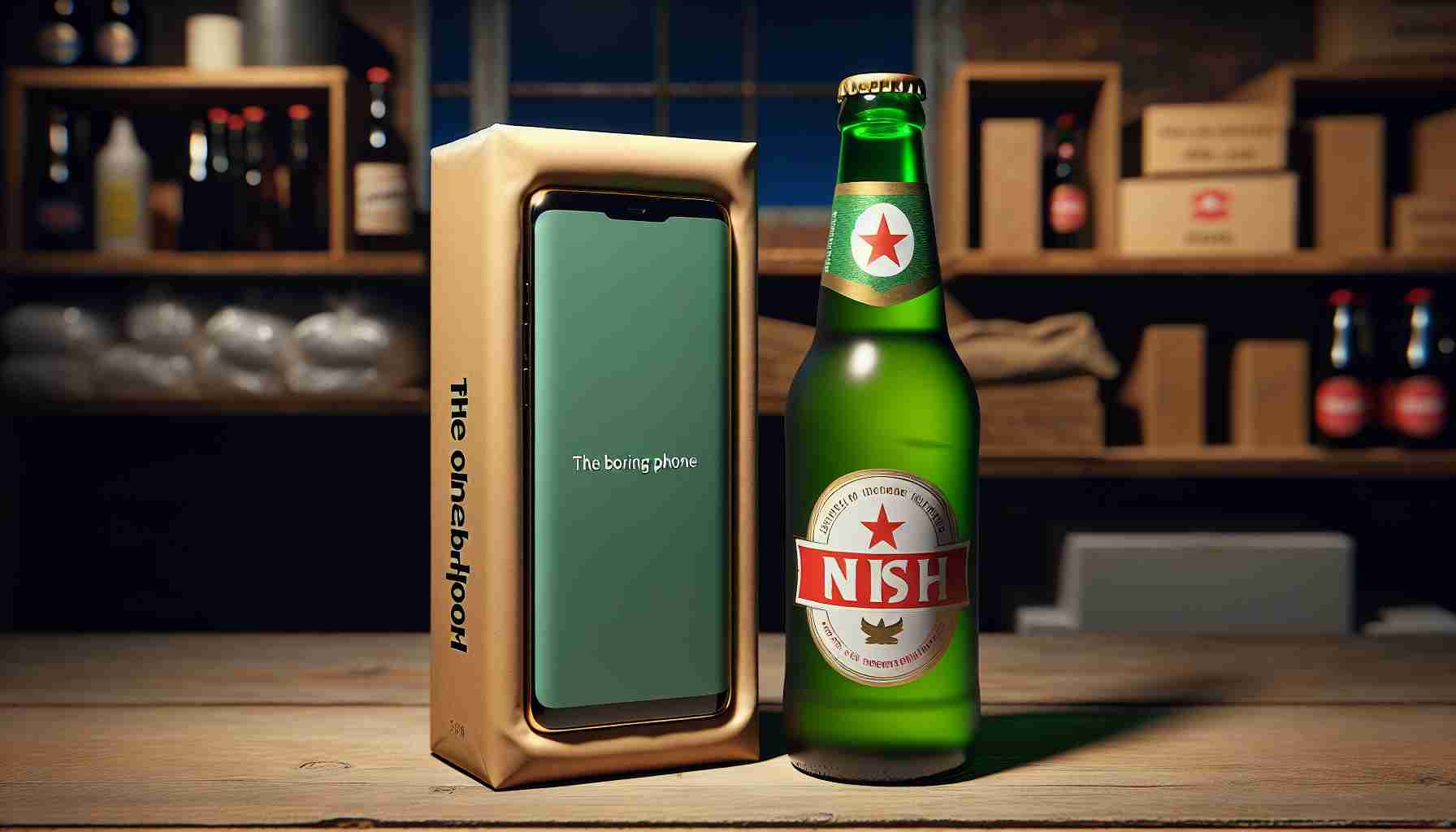In an innovative move to address the ever-growing concern of smartphone addiction and its implications for social engagement, international beer brand Heineken collaborates with American apparel company Bodega. The two have launched a unique product named “The Boring Phone,” designed primarily to reduce user screen time and promote face-to-face conversations.
Mimicking the simplicity of early cellphones, “The Boring Phone” combines a throwback flip phone design with transparent, customizable casing. Manufactured by Human Mobile Devices from Finland, the gadget simplifies technology, boasting a week’s battery life on standby, a minimal 0.3-megapixel camera, and vintage entertainment like the classic snake game and an FM radio.
Fueled by research illuminating the craving among young adults to step away from digital distractions, Heineken uncovered that the frequent checking of phones during social outings can diminish the quality of those experiences. Hence, they pursued this collaboration, which also heralds an app to replicate the device’s minimalist functionality.
This partnership delves into the broader discussion regarding the detrimental effects of excessive smartphone use, including sleep disruption, mental health deterioration, and cognitive function decline. In an effort to combat these issues, there is a movement towards increasing awareness, promoting digital detoxes, and implementing usage constraints.
Heineken and Bodega’s collaboration highlights the need for intentionality in technology use, suggesting a shift towards genuine human interaction. As society becomes more interconnected, initiatives like “The Boring Phone” are vital for fostering the balance between our digital and personal lives, ensuring that technology serves as a compliment rather than a competitor to natural human connection.
Questions and Answers:
– What is smartphone addiction? Smartphone addiction, also known as “nomophobia” (the fear of being without a mobile phone), refers to the compulsive use of smartphones to the point where it interferes with daily life. Users feel extremely anxious when their phone is not accessible, significantly impacting their mental and emotional well-being.
– How can “The Boring Phone” combat smartphone addiction? “The Boring Phone” helps combat addiction by offering a device with limited functionality, thus discouraging continuous and unnecessary use. The absence of engaging apps and a simplified interface mean users are less likely to default to their phones in moments of boredom or habit.
– What are the potential effects of reduced smartphone usage? Reduced smartphone usage can lead to improved attention spans, better interpersonal relationships, improved sleep patterns, and overall better mental health due to decreases in anxiety and depression symptoms commonly linked to excessive screen time.
Key Challenges and Controversies:
One challenge in promoting devices like “The Boring Phone” is the deep integration of smartphones in modern life, serving as tools for everything from navigation to work-related communication. There’s also resistance due to the fear of missing out (FOMO) on social media and updates, as well as the general comfort brought about by smartphone convenience.
A controversy linked to this topic is the balance between technology use and the invasiveness of tech companies in personal lives. There’s ongoing debate about whether it’s the individual’s responsibility to control usage or the onus is on companies to design less addictive, more humane technology.
Advantages of “The Boring Phone”:
– Promotes healthier social interaction and reduces the distractions during meet-ups.
– Could possibly lead to better mental health due to decreased screen time.
– Encourages users to engage with the physical world and real-life activities.
– A long battery life reduces the need for frequent charging and electronic waste.
Disadvantages of “The Boring Phone”:
– Lacks multitasking capabilities that many rely on for work and personal management.
– Limited functions may not suit those who need technology for navigational or emergency purposes.
– Could be seen as a step backwards in terms of technological progression.
For those interested in learning more about smartphone addiction and initiatives to combat digital overload, I would recommend visiting credible health and technology news sources:
– World Health Organization for health-related insights.
– Psychology Today for psychological perspectives on tech addiction.
– Pew Research Center for data and reports on technology use.
